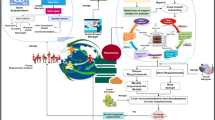Abstract
Handshaking between product management and R&D is key to the success of product development projects. Traditional requirements engineering processes build on good quality requirements specifications, which typically are not achievable in practical circumstances, especially not in distributed development where daily communication cannot easily be achieved to support the understanding of the specification and tacit knowledge cannot easily be spread. Projects thus risk misunderstanding requirements and are likely to deliver inadequate solutions. This paper presents an approach that uses downstream engineering artifacts, design decisions, to improve upstream information, a project’s requirements. During its preliminary validation, the approach yielded promising results. It is well suited for distributed software projects, where the negotiation on requirements and solution design need to be made explicit and potential problems and misunderstandings caught at early stages.
Preview
Unable to display preview. Download preview PDF.
Similar content being viewed by others
References
Battin, R.D., Crocker, R., Kreidler, J., Subramanian, K.: Leveraging Resources in Global Software Development. IEEE Software 18, 70–77 (2001)
Damian, D., Zowghi, D.: RE Challenges in Multi-Site Software Development Organisations. Requirements Engineering 8, 149–160 (2003)
Herbsleb, J.D., Paulish, D., Bass, M.: Global Software Development at Siemens: Experience from Nine Projects. In: 27th International Conference on Software Engineering. ACM, St. Louis MO (2005)
Herbsleb, J.D., Mockus, A.: An Empirical Study of Speed and Communication in Globally Distributed Software Development. IEEE Transactions on Software Engineering 29, 481–494 (2003)
Dahlstedt, A., Karlsson, L., Persson, A., NattochDag, J., Regnell, B.: Market-Driven Requirements Engineering Processes for Software Products – a Report on Current Practices. In: International Workshop on COTS and Product Software RECOTS, Los Alamitos, CA (2003)
Regnell, B., Beremark, P., Eklundh, O.: A Market-Driven Requirements Engineering Process - Results from an Industrial Process Improvement Program. Requirements Engineering 3, 121–129 (1998)
Herbsleb, J.D., Grinter, R.E.: Architectures, Coordination, and Distance: Conway’s Law and Beyond. IEEE Software 16, 63–71 (1999)
Jackson, M.J.: Software Requirements & Specifications: a Lexicon of Practice, Principles, and Prejudices. Addison-Wesley Pub. Co., New York Wokingham, England, Reading, Massachusetts (1995)
IEEE Computer Society. Standards Coordinating Committee.: IEEE Standard Computer Dictionary: a Compilation of IEEE Standard Computer Glossaries, 610. New York, NY, USA (1990)
Chung, L., Nixon, B.A., Yu, E., Mylopoulos, J.: Non-Functional Requirements in Software Engineering. Kluwer Academic, Boston, MA (2000)
Gorschek, T., Dzamashvili-Fogelström, N.: Test-case Driven Inspection of Pre-project Requirements - Process Proposal and Industry Experience Report. Requirements Engineering Decision Support Workshop, Paris (2005)
Stahl, T., Völter, M.: Model-Driven Software Development: Technology, Engineering, Management. John Wiley, Chichester, England, Hoboken, NJ (2006)
Object Management Group, Unified Modeling Language (UML), Version 2.0 (2005)
Gorschek, T., Wohlin, C.: Requirements Abstraction Model. Requirements Engineering Journal 11, 79–101 (2006)
IEEE Recommended Practice for Software Requirements Specifications. IEEE Std 830-1998
Fricker, S., Glinz, M., Kolb, P.: Case Study on Overcoming the Requirements Tar Pit. Journal of Universal Knowledge Management 1, 85–98 (2006)
Kruchten, P.: Casting Software Design in the Function-Behavior-Structure Framework. IEEE Software 22, 52–58 (2005)
IEEE: Recommended Practice for Software Requirements Specifications (Standard 830-1984) IEEE Press, New York, NY (1984)
El Emam, K., Madhavji, N.H.: Measuring the Success of Requirements Engineering Processes. IEEE Computer Society Press, Los Alamitos (1995)
Cooper, R.G.: Winning at New Products: Accelerating the Process from Idea to Launch. Perseus Pub, Cambridge, Massachusetts (2001)
Wallin, C., Ekdahl, F., Larsson, S.: Integrating Business and Software Development Models. IEEE Software 19, 28–33 (2002)
Davis, A., Sitaram, P.: A Concurrent Process Model of Software Development. ACM SIGSOFT Software Engineering Notes 19(2), 38–51 (1994)
Pressman, R.: Software Engineering: A Practitioner’s Approach. McGraw-Hill, New York (2004)
Klir, G.: Facets of Systems Science. Springer, Heidelberg (2006)
Moran, T., Carroll, J.: Design Rationale: Concepts, Techniques, and Use. Lawrence Erlbaum, Mahwah (1996)
Author information
Authors and Affiliations
Editor information
Rights and permissions
Copyright information
© 2007 Springer Berlin Heidelberg
About this paper
Cite this paper
Fricker, S., Gorschek, T., Myllyperkiö, P. (2007). Handshaking Between Software Projects and Stakeholders Using Implementation Proposals. In: Sawyer, P., Paech, B., Heymans, P. (eds) Requirements Engineering: Foundation for Software Quality. REFSQ 2007. Lecture Notes in Computer Science, vol 4542. Springer, Berlin, Heidelberg. https://doi.org/10.1007/978-3-540-73031-6_11
Download citation
DOI: https://doi.org/10.1007/978-3-540-73031-6_11
Publisher Name: Springer, Berlin, Heidelberg
Print ISBN: 978-3-540-73030-9
Online ISBN: 978-3-540-73031-6
eBook Packages: Computer ScienceComputer Science (R0)




